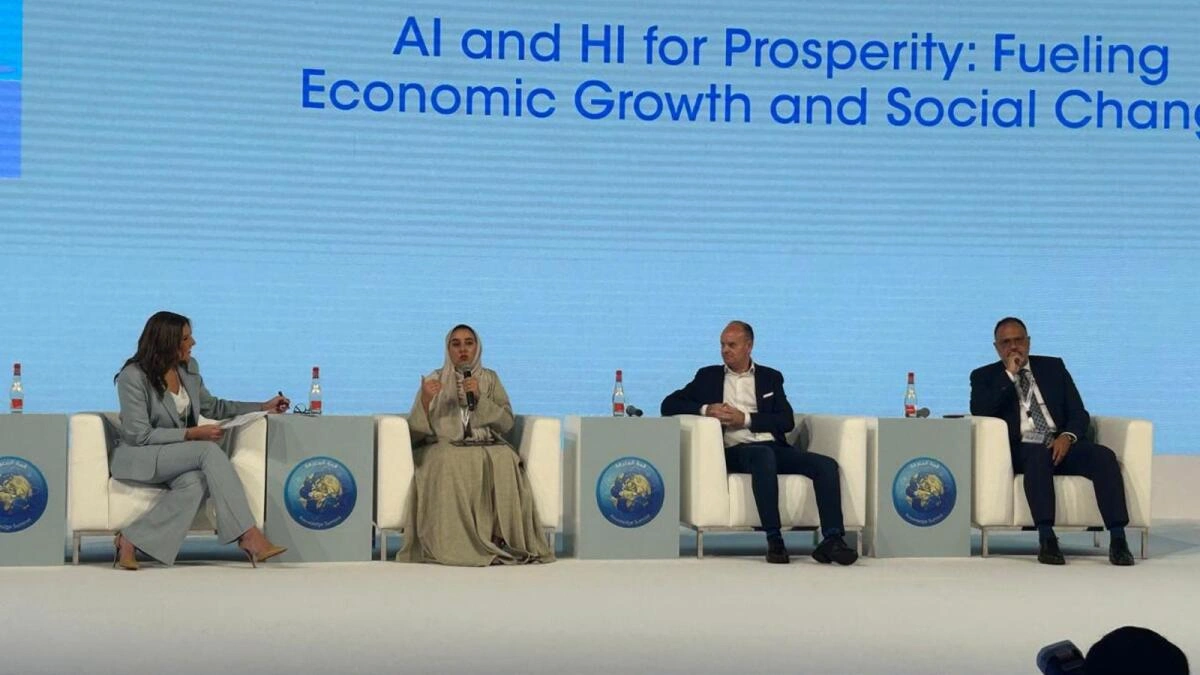Studies reveal that while automation might replace millions of jobs by 2025, artificial intelligence (AI) will also generate 97 million new jobs worldwide. This insight was highlighted on November 18 during the Knowledge Summit by Latifa Alshehhi, Director of the Investment Data Department at the UAE’s Ministry of Investment.
Alshehhi shared, “Automation will take over some traditional roles, but AI will bring exciting opportunities like new roles such as AI trainers and robotics specialists.” She explained the dual impact of AI, with job losses happening alongside the rise of new industries and roles. “AI isn’t something to fear; it’s a tool we need to embrace,” she added, urging people to adapt to the changing job market.
Preparing for AI-driven Careers
Alshehhi emphasized the need to upskill the workforce for an AI-powered future. She shared a personal story about her grandmother learning to use basic AI tools to improve her daily life, showing how technology can benefit all generations. “We must educate and upskill not just our employees but also our friends and family,” she stated.
While automation may replace some traditional roles, AI is opening doors to unique professions such as:
- AI trainers, who teach machines to understand human behavior.
- Data analysts, who interpret massive datasets.
- Robotics specialists, responsible for designing and maintaining automated systems.
- Professionals in emerging industries that AI will create.
Alshehhi also pointed out initiatives like the Mohamed bin Zayed University of Artificial Intelligence, which is helping develop specialized AI education and workforce readiness in the UAE.
How AI is Transforming Industries
Carsten Snedker, Global Head of Business Development at Dynex Development Est, spoke about how AI is improving industries. “From personalized learning systems to energy-saving tools, AI makes life smarter and more efficient,” Snedker said. He mentioned AI-driven tools that help students learn at their own pace and energy monitors that reduce consumption.
However, Snedker also acknowledged the challenges, such as data privacy and ethical concerns. “AI must be used responsibly to support human decision-making and creativity,” he stated, noting how upcoming technologies like multi-agent systems could change how AI interacts with people and businesses.
Building AI Ecosystems Responsibly
Dr. Ayman El-Sherbiny, Chief of ICT Policies and Digital Development at ESCWA, stressed the need for strong policies and ethical frameworks to support AI innovation. “The future will belong to countries that adopt AI responsibly,” he said.
El-Sherbiny highlighted the importance of regional cooperation in developing shared ethical standards. “No country can do this alone. Collaboration ensures success on a larger scale,” he noted, urging governments, academia, and the private sector to work together to balance innovation and regulation.
By embracing AI and preparing for its impact, industries and governments can pave the way for a brighter, more innovative future.









